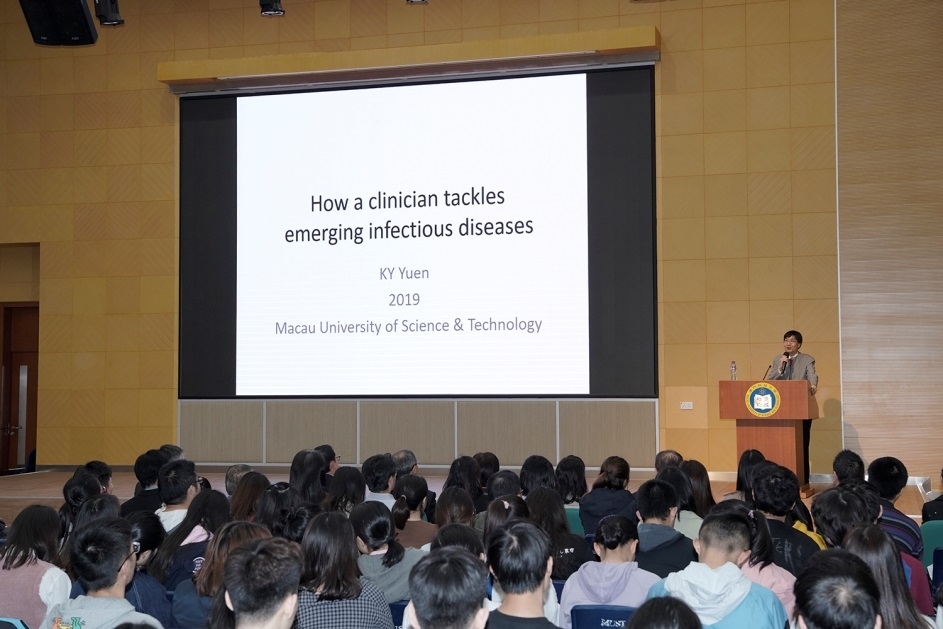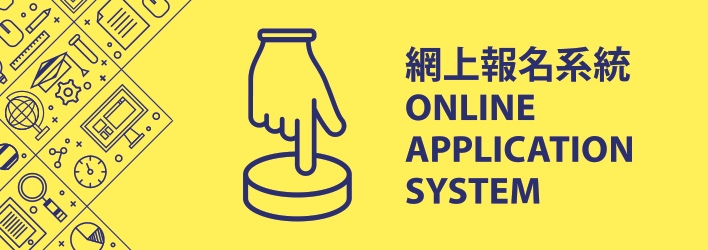Session XXVI of the Great Master of Science and Technology Lecture Series was held successfully at N101 in Macau University of Science and Technology on March 26, 2019. The speaker for this session was Chair Prof. Yuen Kwok-yung, and the topic was “How a clinician tackles emerging infectious diseases”.
Prof. Yuen is a doctor of medicine from the University of Hong Kong, renowned microbiologist, academician of Chinese Academy of Engineering, Professor of Henry Fok Foundation (infectious diseases), Chair of Infectious Disease at the Department of Microbiology of the University of Hong Kong, and Director of the State Key Laboratory of Emerging Infectious Disease of China in the Hong Kong S.A.R.
Chair Prof. Liu Liang, President of M.U.S.T., attended the lecture and gave a speech introducing and welcoming Prof. Yuen. The event was sponsored by the Macao Foundation.
During the lecture, Prof. Yuen took the students on a systematic analysis of emerging infectious diseases. He pointed out that emerging microbe viruses have been growing fast over the past two decades, not just in the sense that there have been increased occurrences, but also in the sense that there has been an expansion in terms of geographic locations affected by new infectious diseases. The professor attributed the increased occurrences for emerging and re-emerging infectious diseases to six categories of elements, including ecological alterations and agricultural development, changes in human behaviors and population behaviors, increased frequency of international traveling and trades, development of science and technologies and industries, adaptation and evolution of microbes, and collapse of public health measures and lack of public health facilities. In the wake of emerging infectious diseases, clinicians and the relevant departments could take effective measures through coordination and re-organization to prevent invasion of new pathogenic bacteria, and reduce the number of patients affected by new viruses. The professor exemplified his points by taking examples from several viruses that have caught broad attention from health departments and practitioners, including Lyme disease, infection of Escherichia coli O157, and anthrax. Emerging infectious diseases not only pose great threats to human well-being, but also constitute potentially fatal defeats to animal husbandry and tourism in developing countries, and one can only imagine the potential damages and impacts of new infectious diseases to the economies of developing countries. As a result, it has become crucial that precautions must be taken and effective preventive measures must be installed to address potential health hazards.
To conclude the lecture, Prof. Yuen noted that the truth is that the majority of people lack knowledge about emerging infectious diseases and that the medicines and medical techniques known by mankind is far from being adequate in battling unknown viruses. Thus, the younger generation has the responsibility to break the unknown grounds in medicine, so as to help the human beings take more effective measures to prevent diseases, and contribute forces to harmony, stability and safety of the society.






